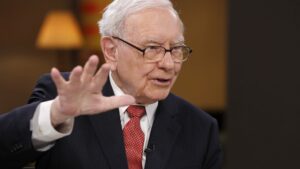Why Warren Buffett is Choosing Philanthropy Over Dynastic Wealth: Insights from the Extreme Investor Network
Warren Buffett is not only renowned as one of the world’s most successful investors, but he is also celebrated for his unique perspective on wealth, family, and philanthropy. Recently, the 94-year-old billionaire made headlines when he named independent trustees to oversee his philanthropy, further solidifying his belief against creating what he termed “dynastic” wealth. For those interested in understanding the principles of wealth management and generational impact, there’s much to learn from Buffett’s approach.
Buffett’s Wealth and His Philanthropic Commitment
Buffett, whose personal fortune stands at a staggering $150 billion, has committed to giving away 99% of his wealth. Rather than passing down a substantial inheritance to his three children—aged 71, 69, and 66—he advocates for a model that emphasizes philanthropy and social responsibility. Recently, he donated an impressive $1.1 billion in Berkshire Hathaway stock to four family foundations, demonstrating his commitment to impactful giving.
Buffett’s decision isn’t merely about the distribution of wealth; it’s tied closely to his philosophy on personal growth and responsibility. He argues that large inheritances can stifle ambition, complicate family dynamics, and lead to societal unrest as future generations grapple with their wealth.
The Philosophy of Philanthropy Versus Dynastic Wealth
In a reflective letter, Buffett articulated his aversion to creating a wealth dynasty, noting, “I’ve never wished to create a dynasty or pursue any plan that extended beyond my children.” He expresses confidence in their abilities but acknowledges the unpredictability that comes with future generations. By appointing independent trustees, he ensures that his philanthropic vision can extend beyond his immediate family, while still empowering them to play a pivotal role in the distribution of his wealth.
Entrepreneurs and investors can take a page from Buffett’s playbook. Consider how your wealth can not only benefit your family but also contribute to larger societal goals. This mindset can transform the way you think about your financial legacy, encouraging a focus on impact rather than solely on accumulation.
A Transition of Trust
Buffett has been closely observing his children’s growth in the realm of philanthropy since 2006, allowing them to gain valuable experience and insight into managing large-scale charitable efforts. In his letter, he stated that these years of connection have solidified his trust in their managerial capabilities and philanthropic aspirations. He believes that his late wife, a strong influence on their values, would be proud of the path they are taking.
This long-term observation serves as a reminder that wealth cultivation is not just about numbers. It’s also about patience, mentorship, and the passing down of values that define responsibility and ethical engagement with wealth. Building financial acumen alongside a heart for charity can create a lasting positive impact.
The Berkshire Hathaway Legacy
Buffett’s company, Berkshire Hathaway, continues to thrive, recently soaring past a $1 trillion market capitalization. The conglomerate owns a diverse portfolio of well-established businesses, from Geico insurance to consumer favorites like Dairy Queen and See’s Candies. As he prepares for the transition of his accumulated wealth, it epitomizes that business success can and should be intertwined with a broader ethical vision.
For investors and entrepreneurs alike, these insights offer a framework for not just accumulating wealth but deploying it wisely and compassionately. The discussion around dynastic wealth versus philanthropy has never been more relevant, and Buffett’s commitment to the latter is a lesson in responsible wealth management.
Conclusion
At the Extreme Investor Network, we believe that understanding the motivations behind wealth distribution can empower the next generation of investors. Buffett’s strong position against dynastic wealth raises critical questions that each of us must consider as we navigate our financial legacies. Rather than merely passing on wealth, how can you ensure that your financial decisions leave a lasting, positive impact on both your family and society?
Join us as we explore more insights and strategies for impactful investing and philanthropy, helping to cultivate a legacy that future generations can be proud of. Stay connected with Extreme Investor Network for more transformative content that inspires responsible investing and meaningful wealth distribution!

